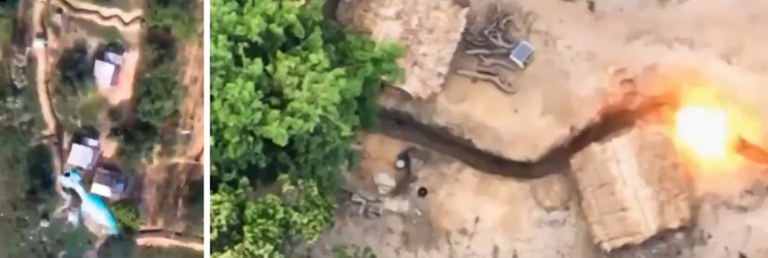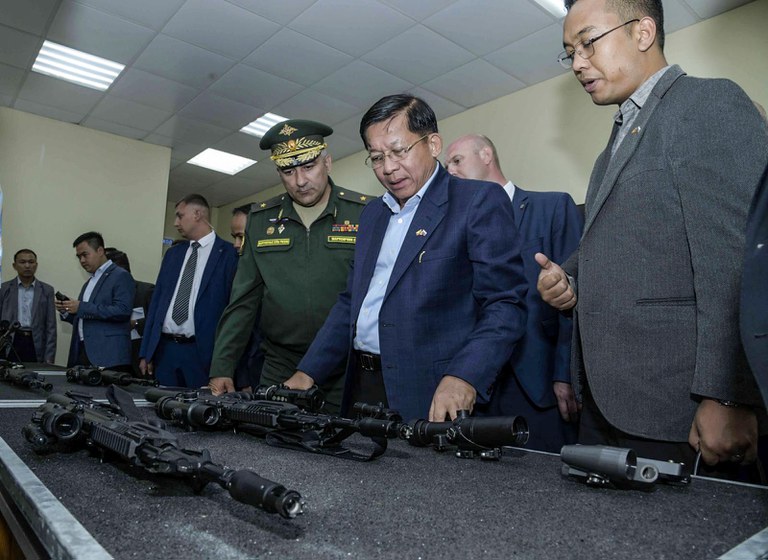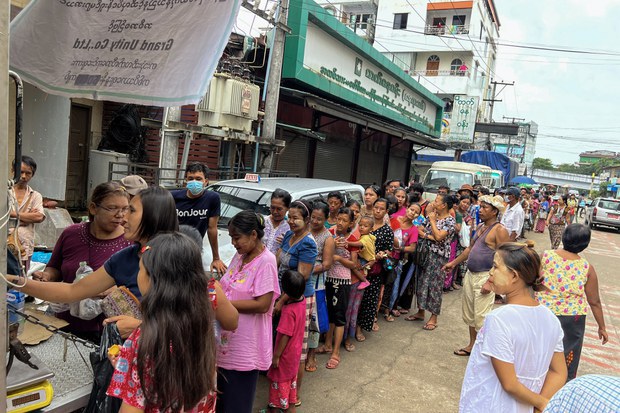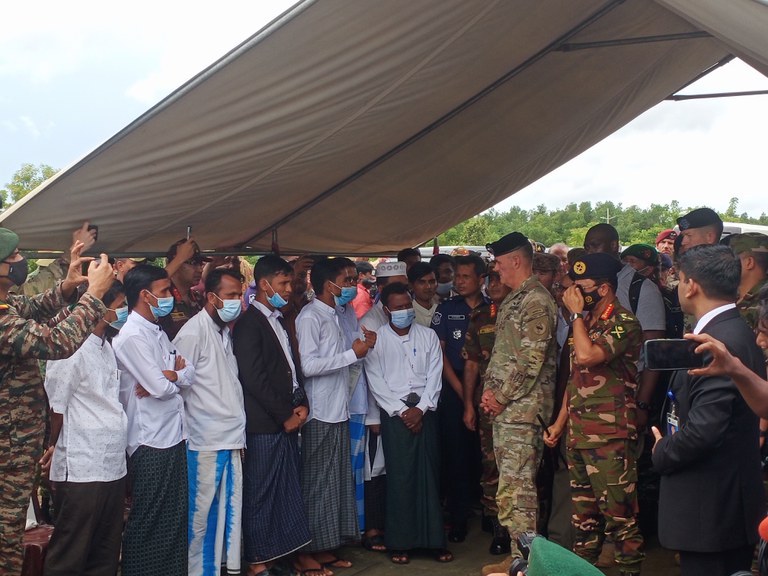Cambodia urges migrant workers in Thailand to join the ruling CPP
A Cambodian government delegation urged migrant workers at a festival in Thailand to back Prime Minister Hun Sen’s ruling Cambodian People’s Party, an opposition activist told RFA. At a celebration for the Cambodian Pchum Ben ancestor remembrance festival on Sunday, CPP officials promised the migrants that the government would help them navigate the process for working legally in Thailand, Pong Socheat, a representative for the banned Cambodian National Rescue Party (CNRP), told RFA’s Khmer Service. “I met the workers, who told me that the Cambodian People’s Party elements came to persuade them to join the CPP. They always promise to help process documents they need to work,” Pong Socheat said. “But the workers are not swayed by that because they do not like the way Hun Sen’s regime rules the country,” Pong Socheat said. The CPP has been targeting the Cambodian diaspora for support in countries like the United States, Australia, Japan, South Korea and in neighboring Thailand, where, according to labor NGOs, approximately 2 million Cambodian migrant workers live, both legally and illegally. Cambodia’s Minister of Labor Ith Sam Heng led the delegation of officials and embassy staff as they met with around 4,000 Cambodian migrants at the festival event in Thailand’s Samute Prakan province near the capital Bangkok. Ith Sam Heng told the workers that the Cambodian government is looking after migrant workers, who remit more than U.S. $2 billion to their families in Cambodia each year. “For our brothers and sisters who work in Thailand I wish to re-emphasize that the government … will continue to pay close attention to you by taking an effort to keep your job and business opportunities for you through the strong cooperation with Thailand,” Ith Sam Heng said at the event. He praised Hun Sen, who has effectively ruled Cambodia since 1985, for overseeing an era of peace, development and cooperation with the country’s neighbors “so that we can give opportunities for our brothers and sisters to work here. And he will continue to look after our brothers and sisters” But Pong Socheat said that Ith Sam Heng made a mistake by bringing along State Secretary Heng Sour, who he said was infamous for threatening to kill overseas Cambodian workers who criticize the ruling party. “Even in Thailand, Hun Sen’s regime comes after us and threatens us. Even if we just meet among ourselves and discuss our desire for change, we are worried about our safety, because they threaten us, saying the Thai authorities will cooperate with them,” Pong Socheat said. Many Cambodian migrants have been critical of their government for failing to protect their rights and interests. The Khmer community in Thailand does not believe that government officials back home are trying to help make their lives easier, Chhorn Sokheoun, a representative of the migrant workers, told RFA. For this reason, the CPP will not be able to persuade many migrants to join the party, he said. “The workers attended the Pchum Ben festival in Samute Prakan province because it is our Khmer tradition. But only a very small number would be brainwashed by the CPP’s political ideology,” Chhorn Sokheoun said. “The majority of workers did not attend the gathering because they clearly understand that working in Thailand is difficult. As for the passports and other necessary document issues, the government has not been helpful. It has always ignored the workers’ problems,” he said. Thuch Thy, who is from Cambodia’s western Battambang province but now works illegally in Thailand, said the cost of living in her new home is immense. A permit to work legally costs more than 17,000 baht (about $450), she said. But Thuch Thy said she has no choice but to work in Thailand because her family has debts in Cambodia and the wages offered there are too low. She said Cambodian migrants in Thailand face many problems, including labor rights abuses from their employers, but rarely receive support from Cambodian officials. “I have been working in Thailand for 15 years. I have never seen any [Cambodian] authorities come to provide any emotional or financial support. I have suffered from poverty and survived floods and heavy rains, but I have never seen any aid donations from my government. If Cambodia had job opportunities like in Thailand, I wouldn’t have left my village,” said Thuch Thy. Translated by Sok Ry Sum. Written in English by Eugene Whong.






